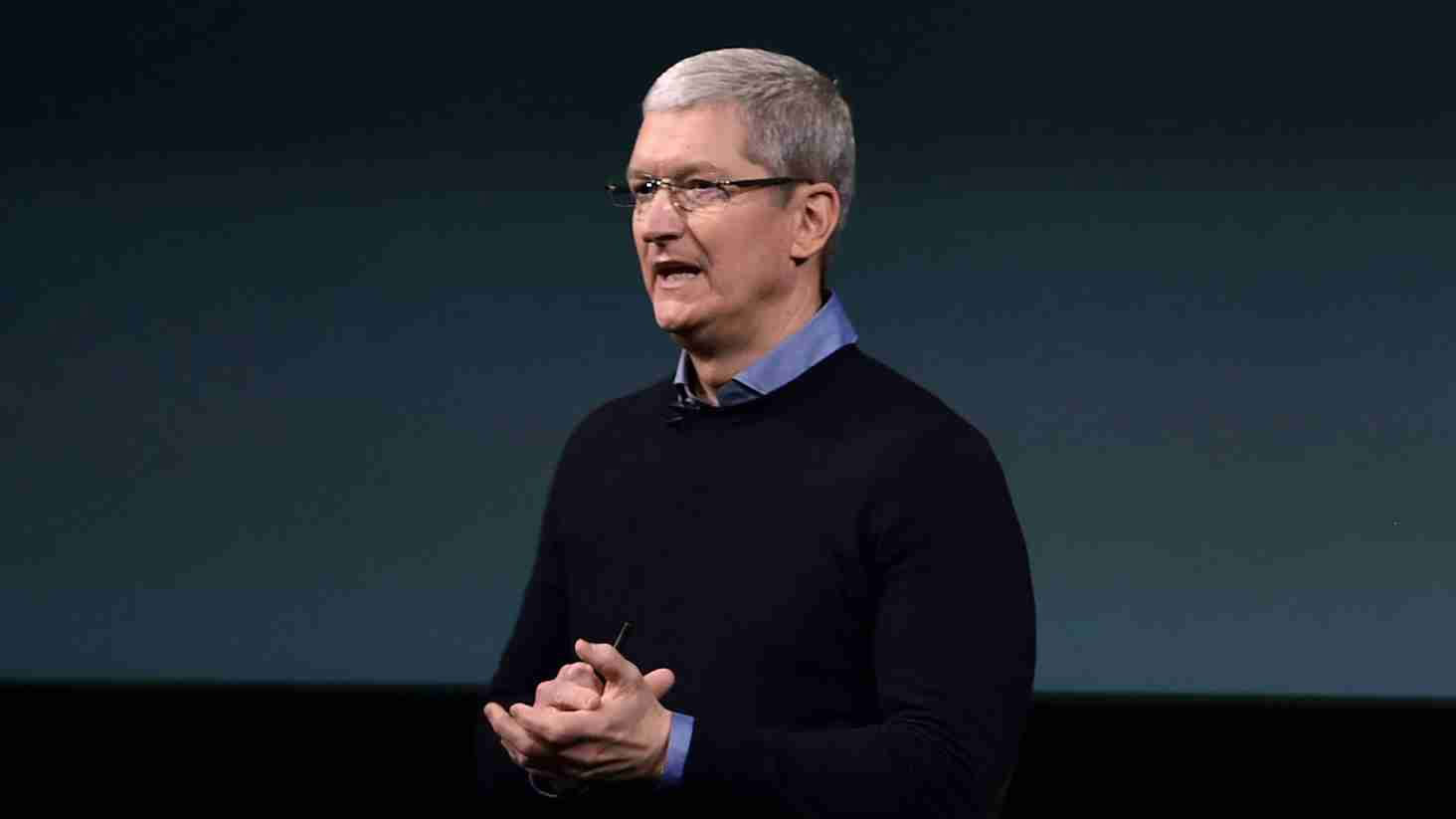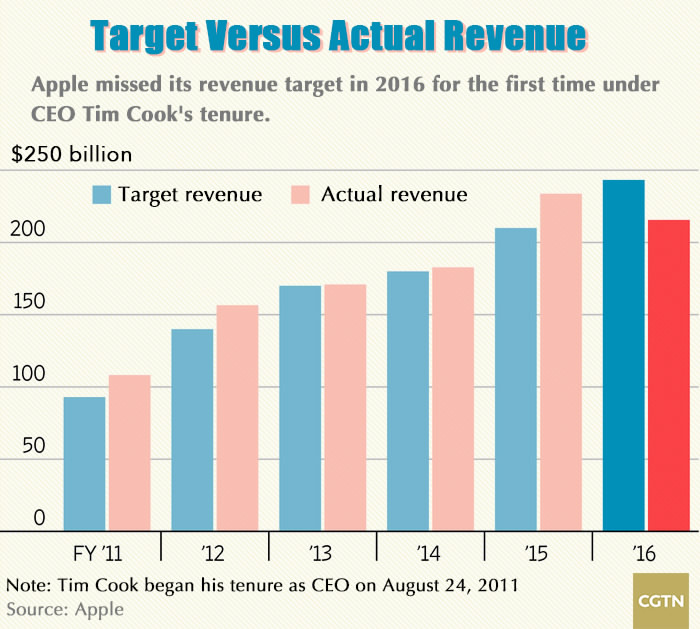
Tech & Sci
14:05, 07-Jan-2017
Tim Cook’s pay slumps as Apple misses sales targets
Updated
10:31, 28-Jun-2018

Apple CEO Tim Cook’s total salary declined last year, as the tech giant failed to reach its 2016 performance targets for revenue and profits.
The company, based in Cupertino, California, fell short for the first time since Apple began publicly disclosing its goals in the 2009 fiscal year.
According to Apple’s filings with the Securities and Exchange Commission (SEC), its annual sales missed its target of 223.6 billion US dollars by 3.7 percent, reaching only 215.6 billion US dollars, while its operating income came up 0.5 percent short at 60 billion US dollars, for the fiscal year ending September 24.

For the first time in 15 years, Apple reported an annual revenue decline, attributed to the first fall in iPhone sales volume since it was introduced in 2007.
As a result of the target shortfall, Tim Cook received a total payout of 8.75 million dollars in 2016, including salary and bonuses, down 15 percent from 10.3 million dollars in 2015 and also down from 9.2 million dollars in 2014.
His base salary, however, increased from 2 million dollars in 2015 to 3 million dollars in 2016.

Tim Cook, CEO of Apple Inc., arrives for the morning session of the Allen & Co. Media and Technology Conference in Sun Valley, Idaho, US, on July 6, 2016. /CFP Photo
Tim Cook, CEO of Apple Inc., arrives for the morning session of the Allen & Co. Media and Technology Conference in Sun Valley, Idaho, US, on July 6, 2016. /CFP Photo
Apple has struggled with disappointing iPhone 6s sales in 2016. For instance, in China, one of its most important markets, it has come under pressure from domestic rival phone manufacturers. Apple’s third-quarter market share in 2016 dropped 2.5 percent year on year to 11.5 percent, as China’s Huawei and Oppo increased their market share, according to data from Gartner, an American technology research and advisory firm.
The iPhone triggered a revolution in mobile computing and became Apple’s biggest moneymaker. Even so, consumers are holding on to their existing iPhones for longer periods instead of upgrading to a newer model every year or two. The device’s sales drop put a dent on Apple’s revenue.
It has raised investors’ concerns that Apple has become too dependent on the iPhone, a nagging worry that has been aggravated by the sales slump in 2016.
Apple’s results this year will depend on the success of the iPhone 7 and 7 Plus, which were introduced in September 2016.
In a call with analysts in October 2016, Cook said demand was outpacing supply, as features like new cameras and longer battery life made them the “best iPhones ever made.”
9573km

SITEMAP
Copyright © 2018 CGTN. Beijing ICP prepared NO.16065310-3
Copyright © 2018 CGTN. Beijing ICP prepared NO.16065310-3